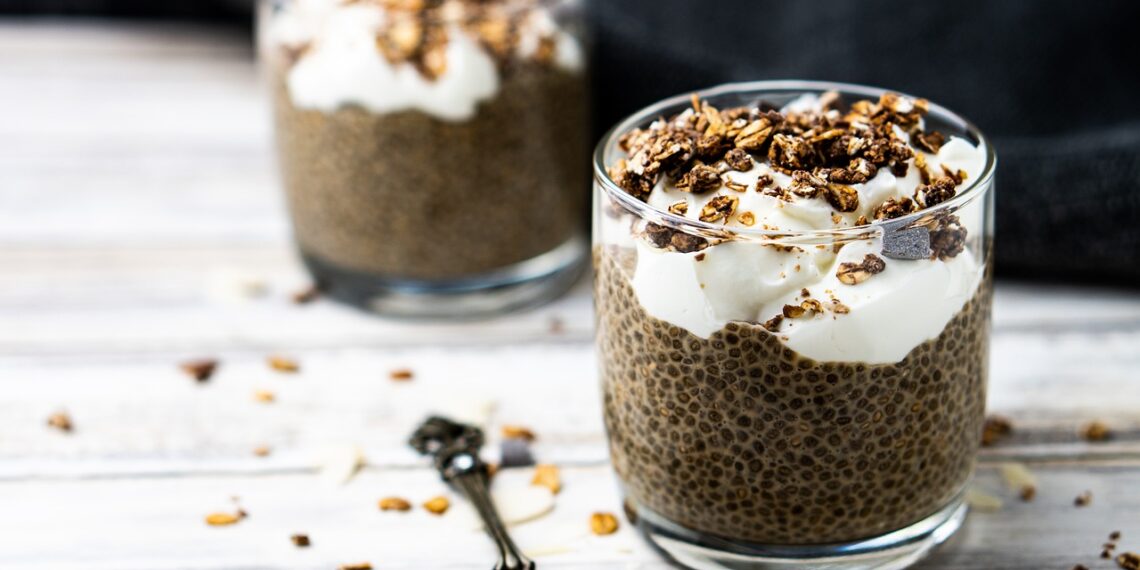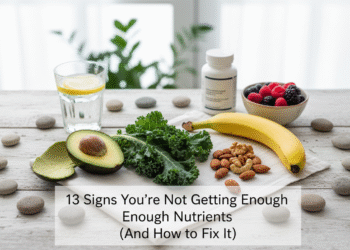Have you ever wondered what to eat before and after your workout to maximize your results? When it comes to fueling your body for exercise, the right nutrition can make a significant difference in your performance and recovery. Let’s break down what you should consider for pre-workout and post-workout meals to help you get the most out of your fitness routine.

Understanding the Importance of Nutrition for Workouts
Nutrition plays a critical role in your overall performance and recovery. The foods you consume before and after exercising can provide you with the energy needed to power through your workout and help your body recover afterward. Knowing what to eat can be the key to achieving your fitness goals, whether that’s building muscle, losing weight, or improving endurance.
Pre-Workout Nutrition: Fueling Your Body
When you think about pre-workout meals, consider the timing, composition, and quantity of what you consume. Ideally, you want to eat between 30 minutes and two hours before your workout. This gives your body enough time to digest the food and convert it into energy.
Carbohydrates: Your Primary Energy Source
Carbohydrates are the primary source of energy for high-intensity activities. When consumed, they break down into glucose, which is readily used by your muscles during exercise. Here’s a quick look at some good carbohydrate options:
| Food Item | Serving Size | Carbohydrates (g) |
|---|---|---|
| Oatmeal | 1 cup cooked | 27 |
| Banana | 1 medium | 27 |
| Greek Yogurt | 1 cup | 20 |
| Brown Rice | 1 cup cooked | 45 |
| Whole Grain Bread | 1 slice | 15 |
Incorporating carbs into your pre-workout meal can provide sustained energy. Good sources of carbohydrates include oatmeal, fruits, and whole grains.
Protein: Supporting Muscle Repair
While carbohydrates fuel your workouts, protein helps repair and build muscle. It’s beneficial to include a small amount of protein in your pre-workout meal, especially if you’re focusing on strength training. A great option is Greek yogurt or a protein shake along with your carbs.
Healthy Fats: The Right Kind at the Right Time
Fats have their place, but they should be consumed in moderation before your workout. They take longer to digest, which might leave you feeling sluggish if consumed too close to your exercise time. A small amount of healthy fats from sources like avocados or nuts can support energy without making you feel weighed down.
Sample Pre-Workout Meals
-
Oatmeal with Banana and Peanut Butter
Oatmeal provides complex carbs, bananas offer instant energy, and peanut butter adds a bit of protein and healthy fat. -
Greek Yogurt with Berries
A great combination of protein and carbs, the berries add antioxidants that can support muscle recovery. -
Whole Grain Toast with Avocado and a Poached Egg
This offers a balance of healthy fats, protein, and carbs to keep you energized.
Post-Workout Nutrition: Recovery is Key
After a workout, your body needs to recover. The right post-workout nutrition can help replenish your energy stores, repair muscle tissue, and enhance recovery. The timing for your post-workout meal is crucial—aim to eat as soon as possible, ideally within 30 minutes to two hours after exercising.
Replenishing Glycogen Stores with Carbohydrates
After exercising, your glycogen stores need to be replenished. This is where carbohydrates come in. Consuming carbs after your workout helps restore the energy used during exercise. The amount of carbs you need depends on the intensity and duration of your workout.
| Workout Intensity | Recommended Carbs (g) |
|---|---|
| Low Intensity (30 min) | 30 – 60 |
| Moderate Intensity (1 hour) | 60 – 90 |
| High Intensity (1+ hour) | 90 – 120 |
For lighter workouts, you can get away with fewer carbs, while intense sessions will require more for adequate recovery.
Protein for Muscle Repair and Growth
Protein is essential for repairing the damage done to your muscles during a workout. It’s generally recommended to consume a protein source soon after exercising to facilitate muscle recovery. Aim for around 20-30 grams of protein in your post-workout meal.
Sources of Post-Workout Protein
Here are some great options for post-workout protein sources:
| Food Item | Serving Size | Protein (g) |
|---|---|---|
| Chicken Breast | 3 oz | 26 |
| Tofu | ½ cup | 20 |
| Protein Shake | 1 serving | 25-30 |
| Eggs | 2 large | 12 |
| Cottage Cheese | 1 cup | 28 |
Balancing Your Macronutrients
It’s important to strike a balance between carbs and protein in your post-workout meal. A good rule of thumb is to have a ratio of 3:1 carbs to protein. So if you had 30 grams of protein, you’d want to pair it with around 90 grams of carbs.
Sample Post-Workout Meals
-
Grilled Chicken with Quinoa and Steamed Vegetables
This meal includes lean protein and complex carbs to replenish energy and aid muscle recovery. -
Smoothie with Spinach, Banana, Protein Powder, and Almond Milk
A quick and nutrient-packed option to get carbs and protein in a convenient form. -
Scrambled Eggs with Whole Grain Toast and Avocado
Providing a combination of protein, healthy fats, and complex carbohydrates.
The Role of Hydration
Don’t overlook the importance of hydration. Water plays a vital role in every aspect of your workout and recovery. Dehydration can hinder your performance and slow down recovery. Aim to drink water before, during, and after your workout. If you’re exercising intensely for over an hour, consider a sports drink to replenish electrolytes lost through sweat.
Hydration Guidelines
| Activity | Water Intake |
|---|---|
| Pre-Workout | At least 16-20 oz within an hour prior |
| During Workout | 7-10 oz every 10-20 mins |
| Post-Workout | At least 16-24 oz within two hours |
Signs of Dehydration
Stay alert to signs of dehydration during your activities. Some symptoms may include:
- Thirst
- Dry mouth
- Dizziness
- Fatigue
Customized Nutrition Plans
Everyone’s body reacts differently to food – what works for one person might not work for another. Factors such as your age, weight, fitness level, and workout type all play a role in determining your optimal pre- and post-workout nutrition.
Before making major changes to your diet, consider consulting with a nutritionist or dietitian. They can help create a personalized plan tailored to your specific fitness goals and dietary preferences.
Dietary Restrictions and Alternatives
If you have dietary restrictions, find ways to adapt these recommendations. For example, if you’re vegan, substitute whey protein with plant-based protein powders or sources like lentils and chickpeas for your protein needs. You can still achieve a balanced intake of carbohydrates, proteins, and fats.

Listening to Your Body
Nutrition may be a science, but it’s also about listening to your body. Pay attention to how different foods and timings affect your performance and recovery. If you’re experimenting with your meals, try keeping a food diary to track what works best. This will provide you with insights into how different options influence your energy levels and recovery.
Final Thoughts on Pre and Post-Workout Nutrition
Finding the right foods to eat before and after your workout can take a little time and experimentation. The crucial aspect to remember is that fueling your body adequately can significantly enhance your workout experience and ensure you’re ready for the next session.
As you work towards your fitness goals, consider your meal timing, composition, and hydration strategically. With the right nutrition plan in place, you’ll likely find that you experience better energy levels during workouts, improved performance, and quicker recovery. Enjoy the journey of finding the best combinations that work for you – the healthier and stronger you become, the more rewarding it will be.











